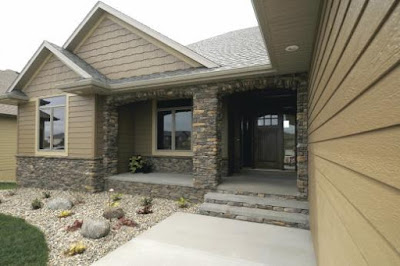1. Make your house look lived in:
Ask friends or hire someone to frequently check on your home. But first, make sure your community officials allow other people to enter your home. If there are regulations, arrange for your assigned person(s) to be allowed to visit your house. Also, give them a to-do list with household tasks, such as:
- water the plants;
- keep the yard tidy (rake leaves and mow the lawn);
- take out the garbage and put the cans back after the garbage pickup;
- remove the snow from the lawn (neighborhood kids are great for this if you get their parents’ word that they’ll remember);
- check for damage, such as water damage;
- pick up your mail;
- feed the pets (if you leave them at home); we recommend leaving your pets with a family member or close friend. If you leave them at home, they may get nervous and damage your belongings.
2. Secure all windows and doors
Don’t forget to lock all the windows and doors, including the garage door. Pay special attention to pet access doors. Also, take any hidden spare keys out of commission. Just don’t forget to re-hide them when you return! Turn off your garage door to keep thieves from opening it with a universal remote. Before you leave, double-check all safety latches on the windows and exterior door locks.
3. Don’t make your holiday plans public
Never announce your vacation plans on social networks, your blog, or anywhere else. There may be hundreds of opportunistic burglars who are fishing for announcements like these. Being aware of who’s around when you discuss your trip in restaurants and even at work is also a good idea. Make sure that your children are discreet, too. What you say on your answering machine and voice mail matters, as well.
4. Remove the GPS in your car
When you use long-term parking at the airport, don’t leave a portable GPS in your car. It may alert thieves that you’re not home and give them a convenient map to your house.
5. Unplug electronics
Unplug all unnecessary appliances (except those on timers, of course) like your desktop computer, coffee pot, and TV to protect your home from an electrical fire or power surge. This can also save you money while you’re gone and eliminate the worry that you’ve accidentally left them on by mistake.
6. Install additional security features
Doing so helps make your home safer and look less attractive to robbers. Consider investing in a security system, cameras or even fake security cameras, at the very least. Exterior lights that run on timers also help.
7. Lock up your valuables
Consider leaving important documents and valuable items with other family members or a bank or lock them in a safe. You can also mark your belongings visibly and permanently with your postcode and house number using a UV marker pen. Keep a list of the make, model and the serial number of these items and take photos of any valuable items that can’t be marked, like jewelry or paintings. Give copies of this list and photos to a trusted friend or relative. Never leave valuables in your home in plain sight.
8. Review your home insurance
That ensures there aren’t any exclusions that could render it void. For example, check that you’re covered if you are away for a certain number of days or if a non-family member lives in your home.
9. Prevent water damage while you’re away
- Shut off the main water supply valve next to your water meter. Or at the very least, turn off the water to washing machines and dishwashers.
- If you’ve turned off the water supply, drain your pipes of all water. To do that, open the faucets, and flush your toilet to clear the water from the tank and bowl.
- If your water supply remains on, have your local contact stop by and let water drip slowly from exterior faucets when temperatures plummet. This prevents pipes from freezing. Another tip to prevent frozen pipes is to keep your thermostat at 55 degrees or higher.
- If your home has an older steam heating system, it may or may not be safe to turn off its water supply. Consult with a heating professional.
- If your home is protected by a fire sprinkler system, DO NOT turn off its water supply.
If your home suffered water damage, call the Restoration Professionals!
Taking these simple steps will help you protect your home from theft while you’re gone. And, it will keep you from obsessing about security once you’re on the road to fun and adventure. In case your home suffered water damage while you’re gone, Inspect it All Services stands ready to provide water damage restoration services with urgency. Contact our local office for more details. Safe Travels!


Comments
Post a Comment